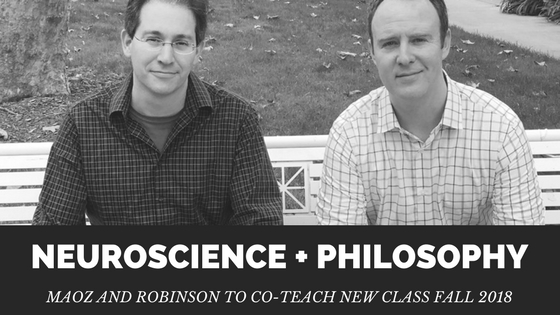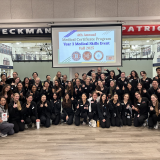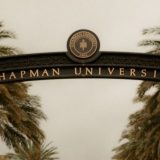
Do Humans Possess Free Will? New class explores this age old question
March 27, 2018
Do humans really have free will or is action controlled by unconscious processes in the brain? If you and your classmates want to dive into these big questions, we have a new class for you!
The Faculty Research and Development Council have awarded the 2018-2019 Co-Teaching prize to Assistant Professors Uri Maoz, Ph.D., and Michael Robinson, Ph.D., for their course “Philosophy and Neurosciences of Free Will and Moral Responsibility,” coming fall 2018 (PHIL 329-01/PSY 495-01). This is the first class of its kind to be offered at Chapman and among the first in the world. So, it is sure to have our deep-thinking students jumping for joy.
Uri Maoz, Ph.D., is a new Assistant Professor of Psychology and Computational Neuroscience at Crean College of Health and Behavioral Sciences and the Brain Institute. He specializes in the neuroscience of free will and moral choice. Michael Robinson, Ph.D., is an Assistant Professor of Philosophy at Wilkinson College, specializing in Ethics and Philosophy of Action, with a primary research focus on free will and moral responsibility. Together, they will teach this unique course.
Students from psychology, health sciences, philosophy, and related disciplines in science and in the humanities are welcome. The students will be exposed to leading research in the neuroscience and psychology of decision-making and will, and will similarly learn about the millennia-old study of free will in philosophy, up to and including contemporary texts. The course will culminate in students working together in teams to develop a philosophically motivated and conceptually sound research proposal pertaining to the study of free will and moral responsibility.
According to Dr. Maoz, “Neuroscientific and psychological investigations have been influencing philosophical discussions on free will at the same time that philosophical concepts and practices have been used more and more to define and interpret research questions in neuroscience and psychology. By now, it is clear that the interdisciplinary collaboration between philosophers and neuroscientists on these high-level concepts will only increase with time. This necessitates the training of the next leaders in both disciplines in the relevant findings and methods of both philosophers and neuroscientists/psychologists.”
We congratulate Drs. Maoz and Robinson on their award. Students wishing to enroll in the class should register for either PHIL 329-01 Experimental Course or PSY 495-01 Applied Topics in Psychology.
Some recent news coverage of the cutting-edge work that will be the focus of this course:
Time Magazine – Can Neuroscience Debunk Free Will.
Scientific America- What Neuroscience Says about Free Will
The Atlantic- There Is No Such Thing As Free Will

